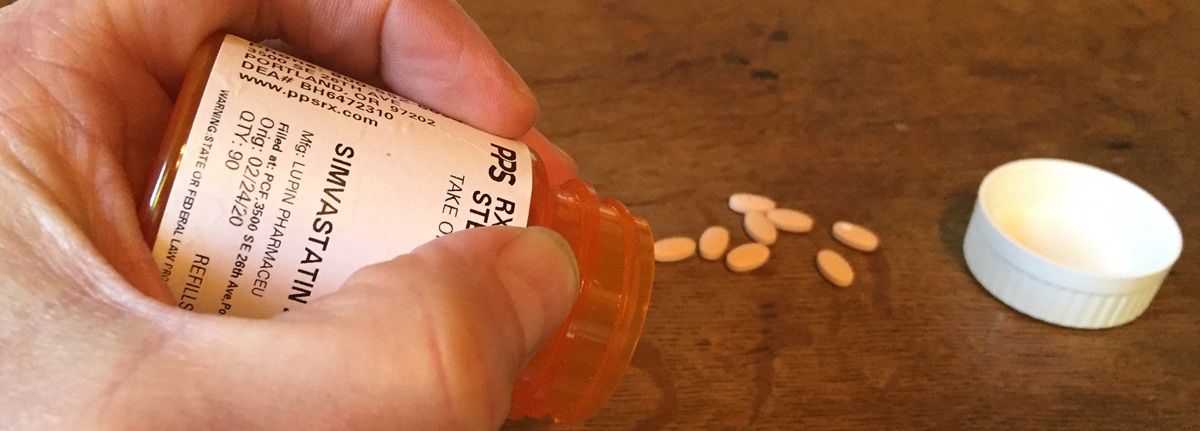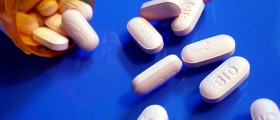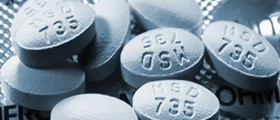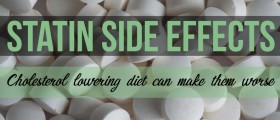What Are Statins?
Statins are medications that are commonly prescribed to lower blood cholesterol levels. Too much cholesterol in the blood negatively affects the functioning and health of your blood vessels.The vessels might become narrow or blocked, causing heart problems and stroke, if your high cholesterol is left untreated.
Statins inhibit the enzyme important for cholesterolsynthesis, called HMG-CoA reductase (3-hydroxy-3-methyl-glutaryl-CoenzymeA reductase or HMGR).These medications decrease the levels of “bad” (LDL) cholesterol and triglycerides and increase the “good” (HDL) cholesterol. Additionally, statins slow the buildup of plaques in the blood vessels, reducing the risk of a heart attack or stroke.

In the United States, numerous different statins have been FDA-approved to be used to treat high cholesterol. The list of statins you are likely to be prescribed includes:
- Crestor (rosuvastatin)
- Lescol (fluvastatin)
- Lipitor (atorvastatin)
- Mevacor or altocor (lovastatin)
- Pravachol (pravastatin)
- and Zocor (simvastatin).
Studies reveal that statins reduce the risks of severe heart conditions by 25 to 35%, and lower the risks of reoccurring stroke or heart attack by 40%.
To lower your cholesterol levels to healthy levels, it is absolutely necessary to maintain a healthy lifestyle while also using the medications as prescribed. Eat a heart-healthy diet, exercise regularly, and avoid the overuse of alcohol if you were diagnosed with high cholesterol. People diagnosed with high cholesterol shouldn’t smoke, even more than the general population, so ask for help with quitting if you need to.
Side Effects of Statins
Statins are usually well tolerated, but some patients experience side effects when using these drugs. Most people who do notice adverse effects while on statins complain about headaches, nausea, vomiting and abdominal cramps and gases. Some patients experience sleepiness or sleeping problems and dizziness, and digestion problems, like diarrhea or constipation. Rash and redness of the skin are also some common side effects of statins use. Sometimes, patients have issues with the muscles, feeling aches, tenderness oar muscle weakness.
More serious adverse effects include: muscle inflammation (myositis), muscle pain (myalgia) and rhabdomyolysis, characterized by muscle pain.
Myalgia is a rare statin side effect. Patients experience pain in the muscles, but, once the treatment is stopped the uncomfortable feeling goes away. This side effect does not harm the muscles.
Myositis is inflammation of the muscles, often found inpatients who use both statins and some other medications to lower blood cholesterol.This condition may seriously damage the muscles, and the risk is especially high if patient use statins and fibrates, for instance.
Elevation of creatine kinase (CPK) levels can also be one of the side effects of statins. The condition is characterized by inflammation,weakness and pain in the muscles, and may need time to be solved.
Rhabdomyolysis is the most serious side effect of statins. Patients experience pain and weakness throughout the body. The condition enormously elevates the levels of CPK, damages the muscles, leads to kidney damage and may cause kidney failure and death.
- The prevalence of statin intolerance is also widely debated, in part because of difficulties in identification and diagnosis, particularly with respect to muscle symptoms. Observational studies suggest it occurs in 10% to 15% of patients, with clinic data putting it as high as 30%.
- The only reliably confirmed adverse events caused by statins are said to be muscle-related, type 2 diabetes mellitus, and possibly hemorrhagic stroke.
- Statin-Associated Muscle Symptoms (SAMSs) are by far the most prevalent and important adverse event, with up to 72% of all statin adverse events being muscle related.
- The JUPITER trial (Justification for the Use of Statin in Prevention) revealed that participants with ?1 diabetes mellitus risk factors randomized to 20 mg daily rosuvastatin were at increased risk (28%) of developing diabetes mellitus, despite reductions in LDL-c levels and cardiovascular events and mortality.
- The SPARCL trial (Stroke Prevention by Aggressive Reduction in Cholesterol Levels) demonstrated a definite reduction in ischemic stroke with 80 mg daily of atorvastatin, but a probable increase in hemorrhagic stroke, which was confirmed in meta-analysis. Recent analysis of randomized controlled trials has suggested that treatment of 10?000 patients for 5 years with an effective regime (40 mg atorvastatin daily) would yield a probable 5 to 10 cases of hemorrhagic stroke.
- Both the PROSPER (Prospective Study of Pravastatin in the Elderly at Risk) and Heart Protection Studies demonstrated no effect of pravastatin or simvastatin on cognitive decline or impairment or the development of dementia. Similarly, no effect of statins on cognitive outcomes in patients with mild-to-moderate Alzheimer disease has been observed, with either atorvastatin or simvastatin.
- Controversy still exists about the effects of statins on renal function. With the exception of hydrophilic statins (pravastatin and rosuvastatin), other statins are metabolized by the liver and minimally cleared by the kidney. Mild transient proteinuria is sometimes seen with high-dose statin treatment, but this is not associated with impaired renal function.
Warning: What You Need To Know Before You Start Taking Statins
You should inform your doctor about all the medicines or remedies you have been taking, as some drugs interact badly with statins.
Any joint or muscle pain you experience during the usage of statins must be reported to your doctor.
These medications are not recommended to be used in pregnant women or patients with previous liver problems.

















Your thoughts on this
Loading...